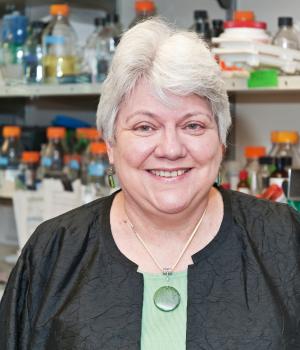Denise A. Galloway
Denise A. Galloway
Our lab is interested in the mechanisms by which human papillomaviruses (HPVs) contribute to epithelial cancers. Most of our research has focused on the HPVs that have a high risk of progression to cervical cancers, such as HPV 16. We have sought to determine how the E6 and E7 oncoproteins disrupt the cell cycle checkpoints that normally maintain genomic integrity, and how E6/E7 facilitates the immortalization of primary human cells in culture. Much of our current effort is directed towards understanding how and why E6 activates and increases expression of hTERT, the catalytic subunit of telomerase. We are also studying the mechanisms by which other oncogenes, such as c-MYC and Ha-RAS immortalize cells, and the tumor supressors that constrain these activities.
In addition to mechanistic studies, we have had long-standing collaborations with epidemiologists and clinicians to understand the natural history of genital HPV infections, and the risk factors that cause only a small subset of women infected with high risk HPVs to progress to cancer. To aid in these studies we have developed serologic assays to detect and characterize HPV-specific antibodies. The recent establishment of multiplex assays in our lab is affording a more comprehensive assessment of the prevalence of HPV infections.
More recently we have begun to study a different group of HPVs, known as the genus beta HPVs. These beta HPVs commonly infect skin, and may play a role in squamous cell skin cancers (SCSC). However unlike the genital HPVs, the genus beta HPV E6/E7 proteins do not target p53 or Rb for degradation, nor do the beta HPVs persist during tumor progression. We have developed methods to detect beta HPV DNA and antibodies, are collaborating in studies to define the role of beta HPV infection in SCSC in a cohort of organ transplant recipients, and are studying the role of E6/E7 in blocking UV-induced apoptosis, as well as other functions of E6/E7.
